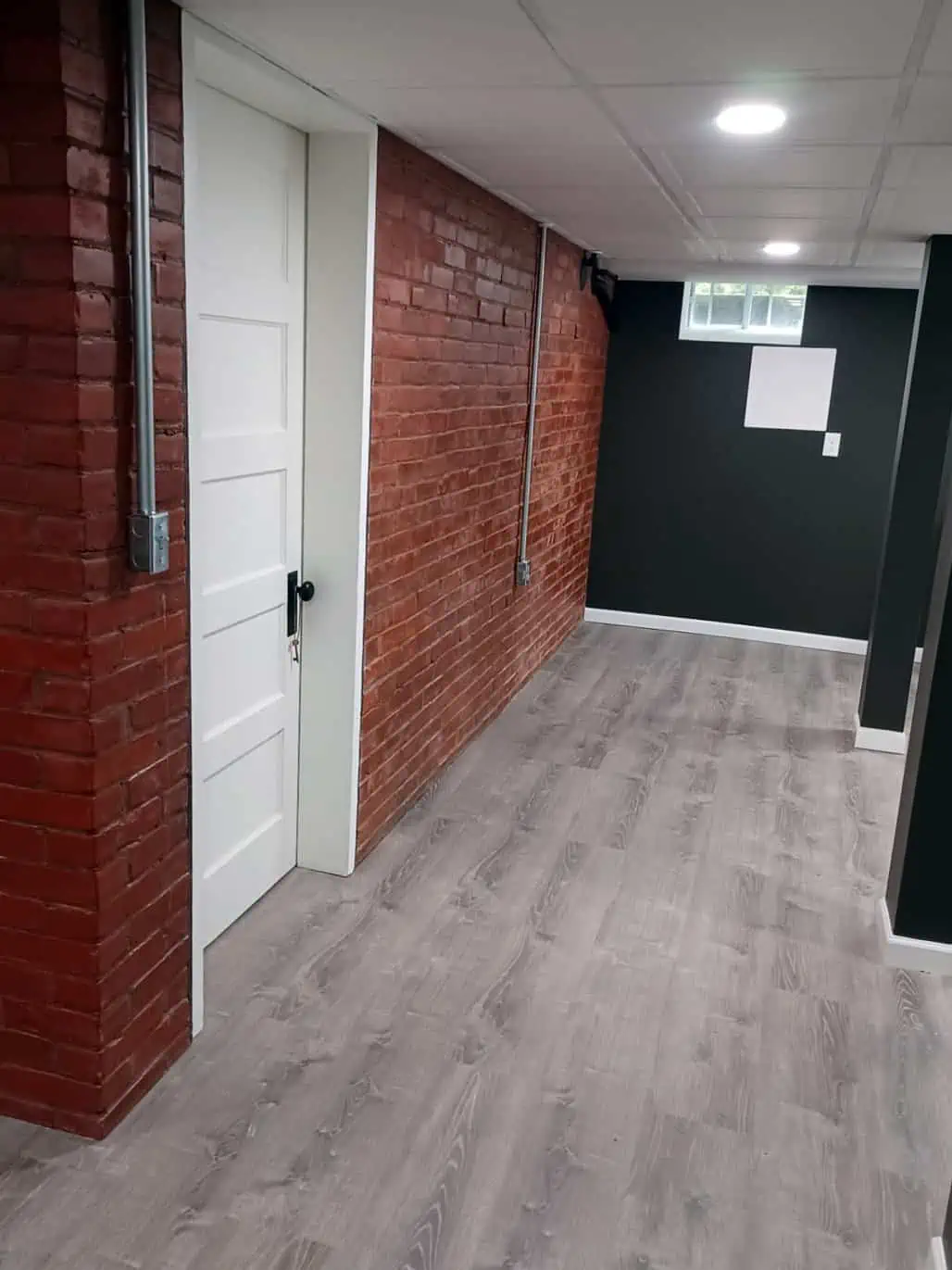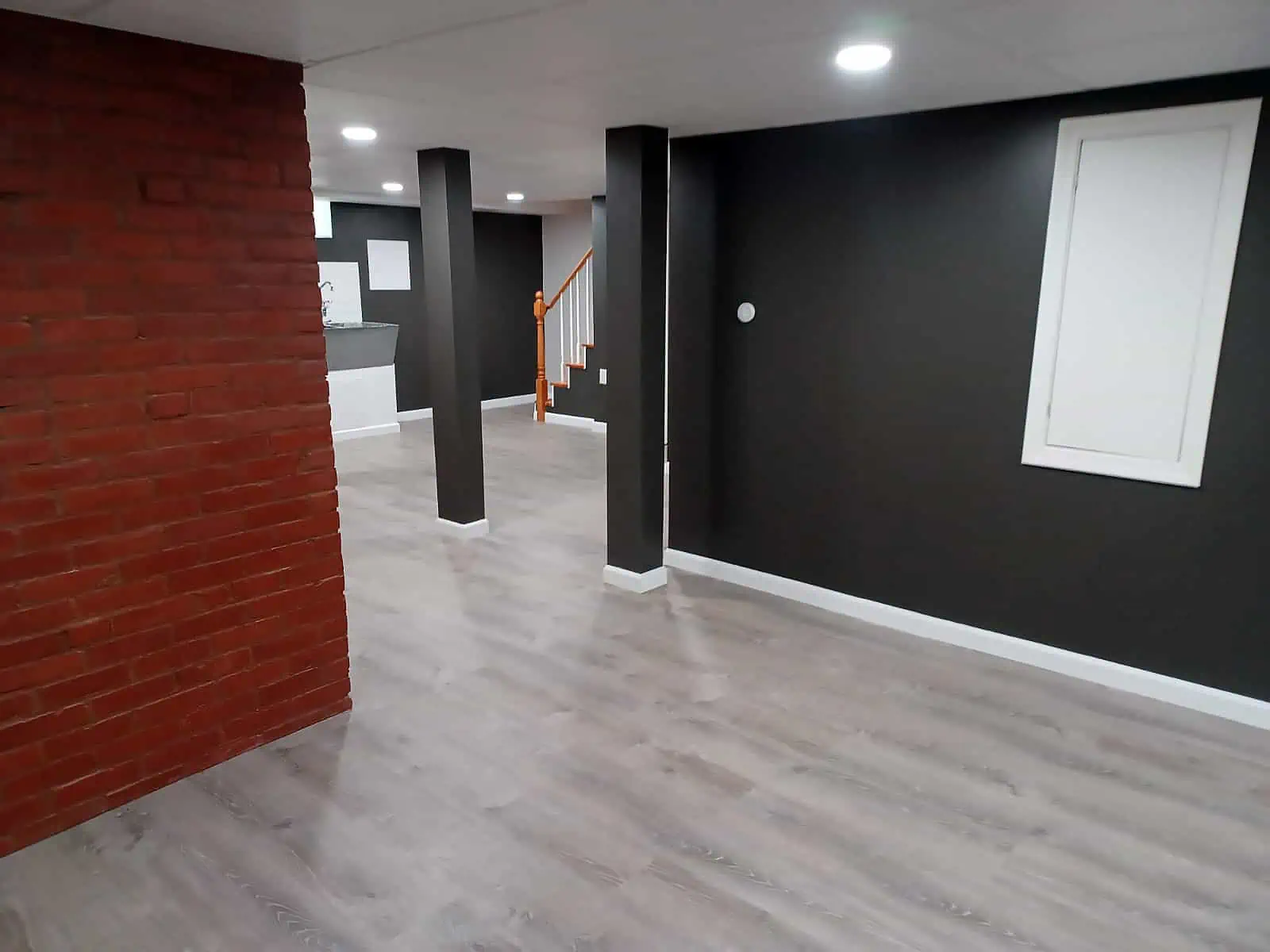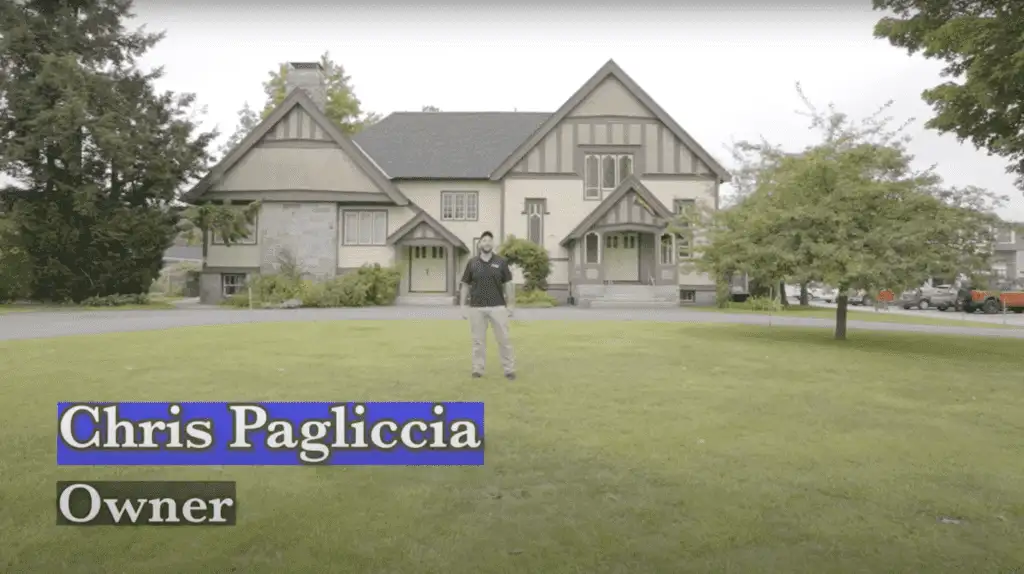Basement Finishing Exeter NH
Finishing your basement is one of the most effective ways to increase the usable space in your home. Whether you’re considering adding an extra bedroom, a home office, or a space for entertainment, a finished basement can bring new life to an otherwise underutilized part of your house. In Exeter, NH, many homeowners are discovering the value of transforming their basements into functional, beautiful spaces.
Real People - Real Great Results
Crawl Space Video Playlist
Why Finish Your Basement?
Let’s start with the obvious: finishing your basement is hands-down one of the smartest ways to make better use of your home. It’s like discovering you’ve had an extra floor this whole time and just needed to wake it up. Here’s why it’s worth the effort:
- Increase Living Space: You’re not imagining extra square footage—you’re claiming it. A finished basement means more usable room for, well, just about anything. Need a quiet getaway? Done. Somewhere to park the in-laws for the weekend? Even better. And the best part? No headaches of adding an extension to your house.
- Boost Home Value: This one’s not just for you—it’s for the next family who might live here. A polished, well-thought-out basement adds real resale value. It’s the kind of upgrade a future buyer can picture themselves moving straight into, no questions asked.
- Create Custom Spaces: Imagine the freedom to build exactly what you need. A yoga studio? Playroom for the kids? Designated gaming cave? Your basement can be a blank canvas for whatever suits your lifestyle. Heck, you could even turn it into a rentable unit and let it start paying you back.

- Improve Energy Efficiency: An unfinished basement is basically a cold storage box for damp air. Insulate the walls, and not only does the basement stay comfortable, but the rest of your home feels the difference too. Think steady temperatures and maybe even a slightly smaller heating bill. Win-win.
- Prevent Moisture Problems: The basement is often the dampest, most neglected spot in the house. But finishing it forces you to deal with that. A little work sealing cracks, adding vapor barriers, and improving ventilation turns a damp dungeon into a dry, breathable part of your home. You’ll thank yourself every time it rains.
There’s potential waiting below your feet—you just have to bring it to the surface. Whether it’s for extra space, better efficiency, or simply getting rid of that “unfinished basement” smell, this is a project that pays off in more ways than one.
Process of Basement Finishing
Transforming your basement from a dark, unused storage area into a versatile part of your home might seem like a daunting project. But broken into manageable steps, basement finishing becomes less of a mystery and more of a straightforward process. Here’s a step-by-step guide to help you tackle the job or understand what to expect when working with professionals.
- Assess the Space: First, get up close and personal with your basement. What’s working? What’s not? Check for signs of moisture—water stains, damp smells, peeling paint—and make sure your foundation is free of cracks or structural issues. Low ceilings or uneven floors can often be addressed but may require creative adjustments in your plans. This initial assessment sets the tone for how straightforward—or complex—your project will be.
- Address Moisture Issues: This isn’t a “maybe later” kind of step. Dealing with moisture upfront is critical to ensure your basement stays both comfortable and functional long-term. Seal up cracks in the foundation, consider installing a vapor barrier, and if you have pooling or standing water, now’s the time to think about adding a sump pump or drainage system. A dehumidifier can also work wonders for maintaining a dry, breathable space.
- Plan Your Layout: Grab a notebook, a tape measure, and maybe even some graph paper. This is where your vision takes shape. Dreaming of a cozy TV lounge? A sleek home office? A guest room or mini studio for out-of-towners? Sketch out how you want to use the space and decide on a layout that balances function and flow. Keep mechanical elements—like water heaters or electrical panels—in mind, as you’ll likely need to work around them rather than move them.
- Insulate and Frame: Basements have a reputation for being chilly, but proper insulation can change that entirely. By insulating the walls, you’ll create a more temperature-controlled and energy-efficient space. Follow this step by framing walls to make distinct rooms or divide the space into zones—like one for work, one for play. Framing also sets the stage for adding drywall or other finishes.
- Install Electrical and Plumbing: This is the step where things get technical. If your basement project involves outlets, recessed lights, or any plumbing for a bathroom or wet bar, bring in licensed professionals to handle the wiring and piping. This ensures not only your safety but also compliance with local building codes. Once these essentials are in place, the transformation starts to feel real.
- Finish the Walls and Ceilings: Here’s when the bones of the space turn into a finished room. Whether you go for drywall or an exposed brick effect, this step adds polish and personality. If noise tends to carry in your house, acoustic tiles or a drop ceiling can create a much-needed sound buffer. Pro tip: Choosing light, neutral colors can make the space feel bigger and brighter, which is especially helpful in basements with limited natural light.
- Flooring and Final Touches: Once the walls and ceilings are done, it’s time to look down. Opt for flooring materials that can stand up to the unique challenges of a basement. Luxury vinyl planks, tile, and sealed concrete are all popular, moisture-resistant choices.
Finally, bring in furniture, lighting, rugs, and décor to make the space feel like a natural extension of your home. This is where your basement stops feeling like a project and starts feeling like part of your life.
Design Ideas for a Basement in Exeter, NH
When it comes to basement design, the key is to make the space work for you. In Exeter, NH, where homes often reflect a blend of charm and practicality, your finished basement can either complement the character of your home or serve as a contemporary contrast. Here are some ideas to elevate your basement from forgotten storage area to functional, inviting space:
- Coastal-Inspired Retreat: Lean into Exeter’s proximity to New Hampshire’s seacoast with a breezy, nautical aesthetic. Use soft blues, sandy neutrals, and crisp white trim to create a space that feels fresh and open. Add touches of natural wood or rattan furniture for texture, and consider art or decorative accents that showcase ocean themes. Durable flooring, like wood-look tile or luxury vinyl, can tie it all together while standing up to the basement environment.
- Guest Suite: Turn your basement into a hotel-worthy haven. Install an egress window to meet safety requirements for a bedroom, and complement it with cozy furnishings and layered lighting to make the space feel warm and welcoming. A guest bathroom, complete with a walk-in shower and modern fixtures, will make sure your visitors feel at home.
- Multipurpose Room: Not sure what to commit to? Opt for a flexible layout that checks multiple boxes. Divide the space into zones: a corner for kids to play (hello, built-in storage for toys), a media area with real-deal theater-style seating, and a mirrored workout nook stocked with fitness essentials. For a seamless feel, use consistent flooring throughout but define each zone with area rugs and specific lighting.
- Home Office: Perfect for remote work or quiet study, a basement office can provide a dedicated, distraction-free workspace. To combat any sense of claustrophobia, focus on great lighting—both overhead and task-specific. Built-in shelving and floating desks save space and keep things streamlined, while a fresh coat of paint in a light, neutral color keeps the area feeling spacious. Add a splash of personality with artwork or plants.
- Rental Unit: Make your basement a long-term investment by crafting a rental apartment. Include a private entrance, a kitchenette, a full bathroom, and a comfortable sleeping area to meet tenant needs. Research local zoning laws and permitting requirements—Exeter has specific building codes you’ll need to follow—but the potential for regular income could make the upfront costs worth it.
With so many options, the challenge isn’t finding a winning idea—it’s narrowing down the possibilities. Consider how your family lives, what kind of functionality you need, and, of course, what adds the most value to your home. Whatever you choose, your basement can transform from “out of sight, out of mind” into one of the most-loved rooms in your house.

Common Challenges and Solutions
Finishing a basement isn’t without its headaches. The process often entails tackling some unique challenges that come with converting an underground space. Here are a few common stumbling blocks and how to approach them head-on.
- Low Ceilings: Let’s face it, most basements weren’t built with tall people—or even a sense of spaciousness—in mind. If headroom is a concern, your best bet is to create an illusion of height. Stick with recessed lighting instead of bulky ceiling fixtures and choose light-colored ceilings and walls to open up the space visually. Dropped ceilings eating into precious inches? Opt for drywall instead, but make sure you still have access panels for any hidden wiring or ducts.
- Moisture Issues: Basements and dampness go hand-in-hand. Before you even think about painting or laying flooring, get serious about waterproofing. Seal up any cracks in the foundation to fend off water intrusion, and if moisture is persistent, invest in a drainage system or sump pump. For ongoing humidity, a dehumidifier will be your basement’s best friend. Pro tip: Pick moisture-resistant materials like vinyl flooring and treated drywall to avoid future headaches.
- Natural Light: Most basements are lucky to get even a sliver of sunlight, leaving them feeling like caves. If you don’t have the budget to install larger windows or egress windows, you’ll need to get creative. Emphasize light-colored finishes to reflect whatever light you’ve got, and layer your lighting with wall sconces, floor lamps, and directional fixtures. LED daylight bulbs can also mimic the look of sunshine without the need for a skylight (which, let’s face it, is out of the question down here).
- Permits and Code Compliance: No one wants to deal with paperwork, but skipping permits is a rookie mistake. Local codes in Exeter, NH can have strict requirements for electrical work, egress windows (safety escapes are a must if you’re adding a bedroom), and ceiling height. Bringing your project up to code isn’t just about legality—it’s about safety and resale value. Do your homework and involve professionals where needed—trust us, the last thing you want is to rip out your hard work because it doesn’t meet regulations.
By preparing for these challenges at the outset, you’ll save yourself a world of frustration, not to mention time and money. A basement isn’t just another room to renovate—it’s its own ecosystem, with quirks that need smart, strategic solutions. Plan accordingly, and you’ll come out ahead.
Planning Your Basement Finishing Project
Before you grab a sledgehammer or start scrolling Pinterest, pause and map out your approach. The first step? Set a budget that’s rooted in reality. Factor in the size of your basement, the complexity of your design, and the finishes you’re dreaming about—whether that’s basic drywall or high-end custom cabinetry. Rule of thumb: Always add 10-15% as a cushion for unexpected expenses. Trust us, surprises love lurking in old basements.
Next, research contractors who actually know their way around Exeter, NH homes. Local expertise matters. Contractors familiar with the area understand quirks like older foundations, high water tables, and the temperamental New England weather. Ask for references and dive into their past work—don’t just take a shiny sales pitch at face value.
Finally, sketch out a timeline. Realistically, you’re looking at a few months from start to finish—longer for more complex builds. Pencil in plenty of time for the permitting process, which nobody loves but everybody needs. Exeter’s permitting office can guide you on local building codes, ensuring you don’t wind up with expensive corrections after the fact.
Careful planning upfront isn’t just a formality—it’s what separates a smooth project from one that spirals into chaos. Dial in your budget, hire the right team, and set a smart schedule, and you’ll be well on your way to turning that dark, cluttered basement into a space you actually want to spend time in.
Benefits of Hiring a Professional
Sure, you could try to handle your basement finishing project on your own. How hard could it be, right? A little drywall here, some framing there, maybe a quick YouTube tutorial on electrical wiring? Before you dive in, consider the advantages of calling in the pros. First and foremost, professionals know what to look for. Moisture creeping through a hairline crack in the foundation, uneven floors that could throw off your layout, or outdated plumbing that can’t handle an extra bathroom—these are issues you might overlook, but a seasoned contractor won’t.
Then there’s the matter of code compliance. Did you know there are specific building codes in Exeter, NH that dictate things like egress windows for safety, insulation standards for energy efficiency, and spacing requirements for electrical outlets? A pro won’t just know these rules—they’ll make sure your project meets them without cutting corners, sparing you the headache of failed inspections or costly fixes down the line.
Another factor? Time. You might think you’ll knock this project out in a couple of weekends. But between daily responsibilities, unexpected hurdles, and learning on the fly, you could be living in a construction zone for months. Professionals have systems, crews, and experience—they’ll get the job done faster and more efficiently, all while delivering a high-quality finish you’ll be proud to show off. Plus, any good contractor will be familiar with local challenges, like Exeter’s high water table or the quirks of older New England homes.
Bottom line: Hiring a professional may not seem as enticing as a money-saving DIY, but the peace of mind, polished results, and time saved are well worth the investment. Play it smart—leave it to the pros.

Wrap-Up
A finished basement represents an opportunity to unlock the hidden potential of your home. It’s not just about adding square footage—it’s about creating a space that works for you and your family. With thoughtful planning and smart investments, you can transform your basement into something as functional as it is inviting. For Exeter homeowners, addressing moisture issues early and tailoring the design to your specific needs and local climate are non-negotiables. The payoff? A personalized space that doesn’t just meet your everyday needs but enhances your quality of life. Start your project today, and years down the road, you’ll still be glad you did.
Reviews from Happy Customers
Our top priority is customer satisfaction, and we work closely with clients to understand their unique needs and goals.






